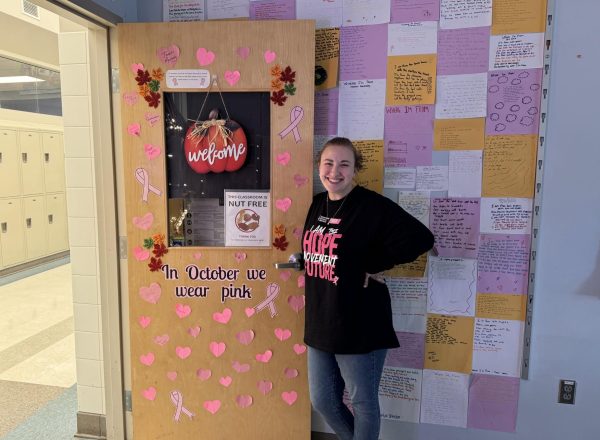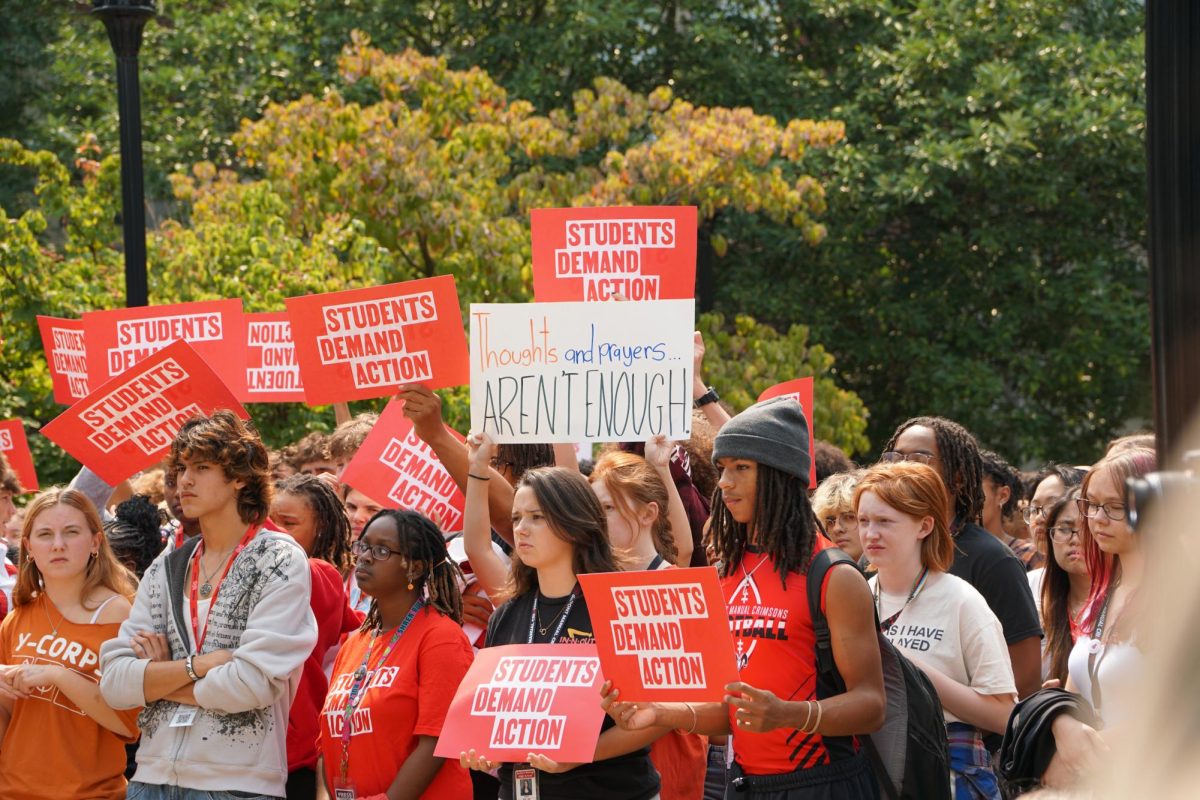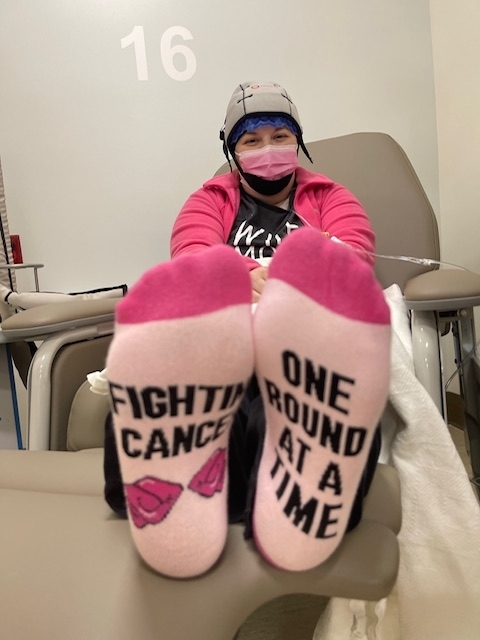One in eight women get diagnosed with breast cancer in their lifetime. Linganore High School (LHS) English teacher Alexis Anzmann was one of these women who contracted this potentially terminal illness.
It is often understood that women under 40-years-old are “too young” to begin screening for breast cancer. According to Yale Medicine, younger women typically do not begin screening “unless they have a mutation, a genetic reason or have physical symptoms, such as a mass or other breast changes.”
An increasing number of younger women, however, are being diagnosed with breast cancer. Center for Disease Control and Prevention states that, “About 10% of all new cases of breast cancer in the United States are found in women younger than 45 years of age.” Many may have no family history of the disease, and their symptoms can be overlooked or dismissed because of their age. Anzmann was only 26 when she received her own diagnosis.
While she was pregnant, she found a lump in her breast that the doctors soon dismissed. Her doctors told Anzmann that it was only a clogged milk duct, and once she began nursing, it would go away.
Breast cancer occurs when breast cells mutate and become cancerous. These cells can divide and multiply to create tumors. The tumors can grow to invade and destroy healthy cells and body tissue. If the cancer is not caught early enough or treated properly, the cancerous cells may begin spreading to other parts of the body.
According to the Mayo Clinic, the DNA changes often happen in the cells that line the milk ducts. This cell change is the exact way that Anzmann was diagnosed with breast cancer.
Usually, women can detect breast cancer on themselves due to unusual breast changes, but doctors often refuse to order mammograms for younger women without genetic reasons, physical symptoms, or mutations. This is still a problem to this day even though breast cancer is the most common cancer among women ages 15 to 39.
During her postpartum appointment, Anzmann and her doctors quickly realized that it did not go away, and they needed to begin running tests.
From there, Anzmann explained that everything moved quickly, including the mammograms, ultrasound and biopsies. Anzmann was initially not too worried and was sure that she could overcome this possible cancer with no issues. After multiple tests, however, she was diagnosed with Stage IV (4) breast cancer.
Finding out that she was Stage IV caused her to mentally shut down for a long time; the combination of postpartum depression and this diagnosis triggered her mental decline.
“I just shut down for a long time,” said Anzmann. “The lights were on, but no one was home.”
Though Anzmann and her family did not take the news well, they gave her nothing but support and stepped up for her during this time. When she got the call about her diagnosis, she could not even finish the phone call. Her husband took over and got all of the information that they needed. Anzmann’s mother-in-law is the one that booked her an appointment within a week of finding out.
She found that going to therapy and talking to other survivors helped her overcome her feelings of discouragement. Survivors who were in her exact situation gave her hope that she would overcome this illness and allowed her to see that there are new treatment options available to her.
One of Anzmann’s biggest moments of discouragement was searching the internet about her illness. Sites, including Google, usually provide old and outdated statistics. This can cause panic and anxiety for people researching illnesses without first meeting with their doctors. Science is rapidly improving, and the old statistics do not reflect the newer treatments that can be used to treat breast cancer. Anzmann primarily relied on people around her and worked on herself to accept that this was her life now. Once she worked on her mental health, she tried her best to focus on her newborn daughter and spend time with her.

“Once I finished treatment, that was when I really announced it to the world,” Anzmann said. “I hadn’t posted it on my socials or anything, and I think the more that I just talked about it with people, it became my new normal.”
Anzmann went through both chemotherapy and immunotherapy but was fortunate not to receive any radiation. She still goes through immunotherapy to this day to keep her cancer at bay. Since her breast cancer was Triple Positive, Anzmann had to get her ovaries removed. Next summer, she plans on getting a double mastectomy and reconstructive surgery. These two surgeries can lower the risk of developing breast cancer again.
Since Anzmann was diagnosed with Stage IV breast cancer, she will technically always have cancer. She was lucky enough that her chemotherapy killed her fast-growing cancer cells, but it is still possible her cancer could be lying dormant. Her daily medication and monthly bone shots help prevent tumor growth.
When she was first diagnosed, Anzmann had no hope. All she could think about was that her cancer was incurable. Now that she has gotten to the point of being “cancer-free,” she is more comfortable with sharing her story and making it known to other survivors that they have a chance to overcome this illness.
Anzmann understands that Breast Cancer Awareness Month can be triggering, especially when one is newly diagnosed, but she tries to talk about it as much as possible. Stage IV breast cancer only receives an estimated amount of 2-5% of funding compared to other cancers.
Anzmann tries her best to get people to advocate for themselves because she feels that the biggest issue for young women is getting dismissed by their doctors.
“If something’s wrong, you know your body better than anybody else,” Anzmann said. “You have to keep pushing until you get answers.”
This story was originally published on The Lance on November 19, 2024.






































